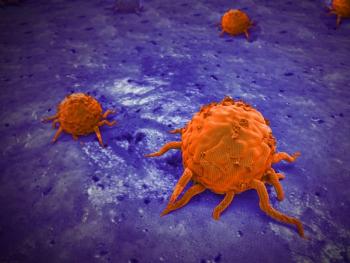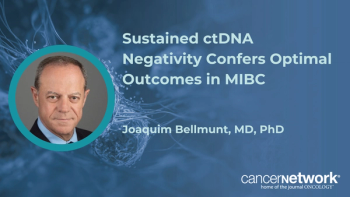
Oncology NEWS International
- Oncology NEWS International Vol 16 No 3
- Volume 16
- Issue 3
Legal Services Should Be a Component of Standard Cancer Care
It is commonly accepted that nonmedical issues, such as loss of benefits, employment concerns, and debt management, may negatively impact the outcomes of patients fighting cancer.
NEW YORKIt is commonly accepted that nonmedical issues, such as loss of benefits, employment concerns, and debt management, may negatively impact the outcomes of patients fighting cancer. According to a recent survey co-funded by the Lance Armstrong Foundation and the Centers for Disease Control and Prevention (CDC), access to legal assistance should be part of the continuum of cancer care.
The survey was conducted by LegalHealth, a division of the New York Legal Assistance Group, which provides free legal assistance to low-income seriously ill individuals (
LegalHealth worked with law students, a professional nonprofit evaluator, and a public health researcher to create and administer the survey, which queried 51 cancer patients (age 29 to 82) who had been assisted by LegalHealth. The survey asked whether legal services helped reduce their worries, how it affected their financial situation and their loved ones, and if it helped them maintain their treatment regimens.
Ms. Retkin said that the financial implications of cancer left many of these patients in extremely vulnerable situations, struggling to continue working despite their illness or having to deal with the loss of a job. "Perhaps the most compelling statistic was that 78% of the individuals surveyed said that their diagnosis of cancer actually created their legal difficulties," she said. The study also found that 83% said legal services helped reduce stress, 51% said the services had a positive effect on their financial situation, and 33% reported that legal services helped their families or loved ones. "Many of our clients were just keeping their heads above water, but after a cancer diagnosis, their legal and financial situations spiraled out of control," Ms. Retkin said. Patients also said that legal services helped them keep medical appointments (22%) and maintain their treatment regimens (23%).
LegalHealth attorneys hold weekly or monthly legal clinics in New York City hospitals and community-based facilities, six of which focus on cancer. In 2006, they assisted approximately 2,300 patients, 600 of whom were diagnosed with cancer. "Our educational program trains physicians to understand the legal issues affecting their patients, and we also provide consumer training to help patients cope with potential legal issues," she said.
Along with hospitals and community facilities, LegalHealth also partners with educational and advocacy groups such as CancerCare, Inc. "We provide a monthly on-site clinic at CancerCare, working directly with cancer patients. We have a great relationship with CancerCare. They've become a big source of referrals for us," Ms. Retkin said.
Articles in this issue
about 19 years ago
Peptide-Based Breast Ca Vaccines Promising in Early Trialsabout 19 years ago
Diagnostic Dilemma: GI Diseaseabout 19 years ago
Imatinib Responses in CML May Take Timeabout 19 years ago
IV Vidaza Approved; Oral Formulation to Be Testedabout 19 years ago
Study Confirms Avastin Advantage in Advanced NSCLCabout 19 years ago
Mouse Virus Evidence Suggests Viral Basis for Breast Caabout 19 years ago
Groups Oppose Ruling on Access to Experimental Drugsabout 19 years ago
Nexavar Effective in Advanced HCC: Phase III Trial Stoppedabout 19 years ago
H&N Ca Patients With CR to CRT May Not Need SurgeryNewsletter
Stay up to date on recent advances in the multidisciplinary approach to cancer.



















































